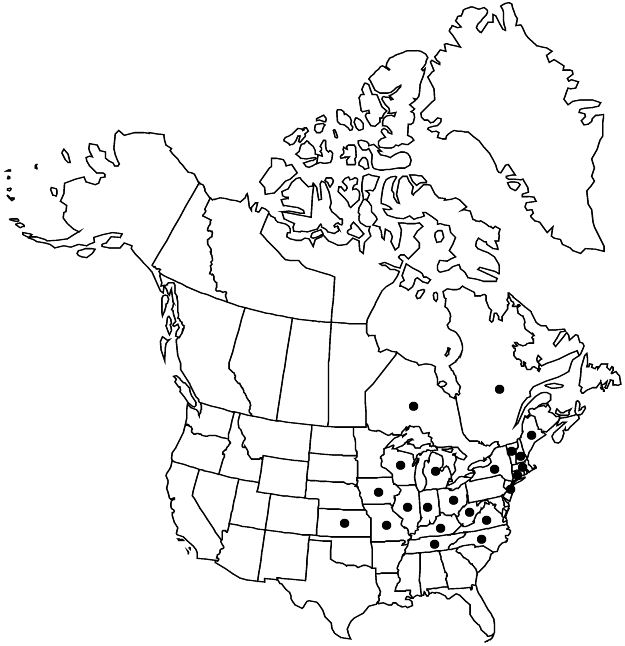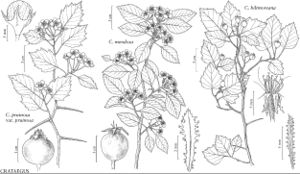Difference between revisions of "Crataegus pruinosa var. pruinosa"
FNA>Volume Importer |
imported>Volume Importer |
||
| (2 intermediate revisions by 2 users not shown) | |||
| Line 3: | Line 3: | ||
|accepted_authority= | |accepted_authority= | ||
|publications= | |publications= | ||
| + | |special_status={{Treatment/ID/Special_status | ||
| + | |code=F | ||
| + | |label=Illustrated | ||
| + | }}{{Treatment/ID/Special_status | ||
| + | |code=E | ||
| + | |label=Endemic | ||
| + | }} | ||
|basionyms= | |basionyms= | ||
|synonyms={{Treatment/ID/Synonym | |synonyms={{Treatment/ID/Synonym | ||
| Line 53: | Line 60: | ||
|publication title= | |publication title= | ||
|publication year= | |publication year= | ||
| − | |special status= | + | |special status=Illustrated;Endemic |
| − | |source xml=https:// | + | |source xml=https://bitbucket.org/aafc-mbb/fna-data-curation/src/2e0870ddd59836b60bcf96646a41e87ea5a5943a/coarse_grained_fna_xml/V9/V9_978.xml |
|subfamily=Rosaceae subfam. Amygdaloideae | |subfamily=Rosaceae subfam. Amygdaloideae | ||
|tribe=Rosaceae tribe Gillenieae | |tribe=Rosaceae tribe Gillenieae | ||
Latest revision as of 23:00, 5 November 2020
Shrubs or trees, 20–70 dm, usually branched to base. Leaves: blade ovate or ovate-oblong to narrowly deltate, 4–6 cm, length/width = 1.5, lobes 2–4 per side, lobe apex acute, base broadly cuneate to subtruncate, adaxial surface glabrous, sometimes sparsely appressed-hairy along veins. Inflorescence branches glabrous. Flowers 15–22(–25) mm diam.; stamens 20, anthers pale pink, rarely red.
Phenology: Flowering Apr–May; fruiting Sep–Oct.
Habitat: Open scrub, light woodland shade
Elevation: 20–1300 m
Distribution

Ont., Que., Conn., Ill., Ind., Iowa, Kans., Ky., Maine, Mass., Mich., Mo., N.H., N.J., N.Y., N.C., Ohio, Tenn., Vt., Va., W.Va., Wis.
Discussion
Variety pruinosa is common through the northern range of the species, mainly north of southern Missouri and the Ohio River; it is found southward at middle and higher elevations in the Appalachians. Crataegus bracteata from Missouri is somewhat atypical; the adaxial leaf surfaces are briefly soft-pubescent, and the abaxial midrib permanently hairy. With its somewhat large leaves (5–6 cm) and slightly glandular sepal margins, as well as its very conspicuous bracteoles, it probably represents introgression with C. coccinioides. A red-anthered variant of var. pruinosa with a more deltate-ovate leaf shape, perhaps matching Crataegus tumida, has been collected from New York.
Selected References
None.
